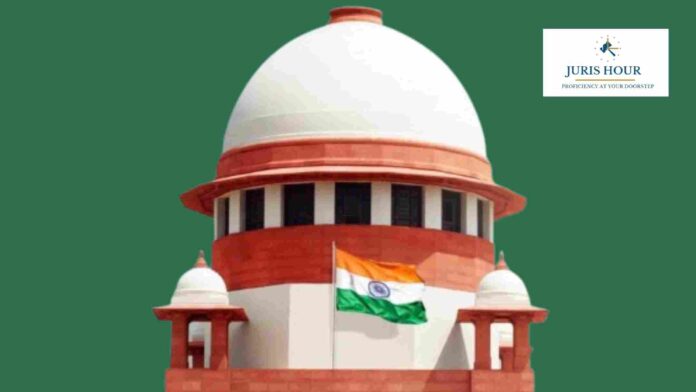The Supreme Court has slammed borrowers’ attempts to create third-party rights; flagged flaws in SARFAESI Act, and urged the Finance Ministry to amend the law.
The bench of Justice J.B. Pardiwala and Justice R. Mahadevan has observed that due to the continuing rise in the number of non-performing assets and a pathetically poor rate of loan recovery, the SARFAESI Act was enacted. The SARFAESI Act was envisioned as a watershed legislation and a panacea to the failure of the existing legislation in addressing the major problems that were being faced by banks and financial institutions in India with respect to the recovery of bad debts, by introducing enforcement of debt without intervention of courts through securitisation and asset reconstruction, a need highlighted by several committees. Various amendments have been made to the SARFAESI Act over the years to ensure that the Act continues to be potent in bringing about meaningful change to the poor credit culture prevailing in the country and put a check on the debt evasive acts of scrupulous borrowers.
“It has been almost twenty-three years, since the SARFAESI Act has remained in force. It is indeed very sad to note that even after these many years procedural issues such as the one involved in the case at hand, have continued to plague the legislation,” the bench said.
The appellants in this case are the Auction Purchasers, while respondent nos. 1 to 4 are the Original Borrowers and respondent no. 5 is the Bank. The borrowers had availed a cash credit facility of ₹5 crore and a term loan of Rs. 30 lakh, secured by guarantees and equitable mortgage of immovable properties, including 1.92 acres of vacant land in Dharapuram, Tiruppur District.
Upon default, the Bank classified the loan as a Non-Performing Asset, with dues of Rs. 3.96 crore, and issued a notice under Section 13(2) of the SARFAESI Act. As the borrowers did not raise objections, the Bank proceeded with a possession notice under Section 13(4) on 28.10.2020 and published it in newspapers.
The borrowers challenged the action before the DRT, but meanwhile, the Bank issued an Auction Sale Notice for recovery of Rs. 4.55 crore. The notice was published, and again challenged by the borrowers before the DRT.
The appellants successfully bid in the auction for Rs. 1.25 crore, deposited the full amount by 20.03.2021, and received a Sale Certificate from the Bank on 22.03.2021. The Bank appropriated the sale proceeds towards the outstanding dues, and thereafter, in March 2021, the borrowers paid an additional Rs. 2.88 crore, though a balance of Rs. 61.91 lakh still remained unpaid.
Proceedings before the DRT
After the auction sale and issuance of the Sale Certificate, the DRT on 26.03.2021 ordered status quo, even though the auction purchasers (appellants) were not parties. They later filed an impleadment application, which was allowed on 14.07.2021.
Meanwhile, the borrowers paid part of the dues and the Bank closed their loan account by adjusting the auction proceeds. Despite repeated adjournments, on 19.01.2023, the DRT dismissed both the borrowers’ applications (S.A. No. 517/2020 against the possession notice and S.A. No. 160/2021 against the sale notice).
Impugned Order of the High Court
Instead of appealing before the DRAT, the borrowers filed W.P. No. 1882/2023. The High Court entertained it, holding that the borrowers’ right of redemption under Section 13(8) of the SARFAESI Act survived even after the auction, relying on Mathew Varghese v. Amritha Kumar (2014).
The High Court quashed the Sale Certificate dated 22.03.2021, directed the Bank to close the loan account, and refund Rs. 1,25,60,000 to the auction purchasers with 9% annual interest. The borrowers were ordered to bear the interest liability.
Appeal
Aggrieved by this, the auction purchasers have now approached the Supreme Court.
Conclusion
“We are, however, at our wit’s end to note how the ill-wording of Section 13(8) of the SARFAESI Act has resulted in a glaring inconsistency between the aforesaid provision and the SARFAESI Rules framed in lieu thereof. It is unfortunate that the ambiguities within the statutory provisions of the SARFAESI Act and Rules thereunder have left the interests of secured creditors and auction purchasers high and dry. The interpretative deadlock between the provision and the rules has single handedly resulted in a huge mess insofar as enforcement of security interest is concerned., giving birth to an endless pipeline of litigation clogging the specialized forums of the DRT and DRAT, that are expected to expeditiously decide matters of recovery of debt,” the court said.
The court urged the Ministry of Finance to take a serious look at these provisions and bring about necessary changes, before it is too late in the day.
Case Details
Case Title: M. Rajendran & Ors. Versus M/S Kpk Oils And Protiens India Pvt. Ltd.
Case No.: Civil Appeal No. 12174 Of 2025
Date: 22/09/2025

